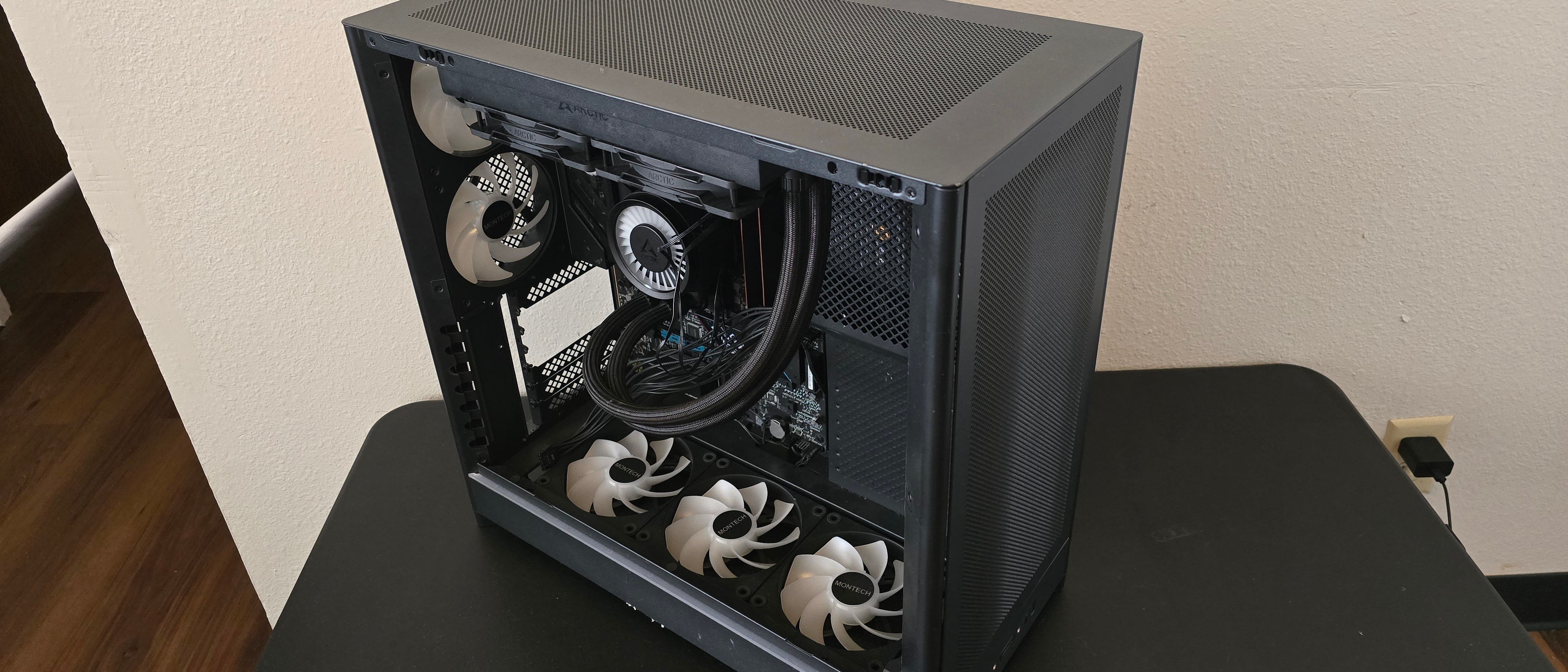Tom's Hardware Verdict
Montech’s HS01 Pro features a unique design that prioritizes GPU cooling, which in turn reduces GPU noise for quieter gaming.
Pros
- +
Unique design with two exhaust fans
- +
Focused on GPU temperatures in its default configuration
- +
Support for up to 11 fans
Cons
- -
Air coolers may not perform as well in the default configuration
Why you can trust Tom's Hardware
Montech’s HS01 Pro is a unique case from the affordable cooling mainstay, with a number of design choices that set it apart. Most cases incorporate front- or side-mounted intake fans, but Montech switched it up and placed these at the bottom for the best GPU thermals possible. Other features that make this case stand out are back-connect motherboard support, compact SFX PSU support, and dual exhaust fans.
In many ways, the HS01 Pro is very similar to the HS02 Pro. The primary difference between these two cases is the front side: While the HS02 Pro incorporates a glass front panel, the HS01 Pro instead features a front mesh panel that allows for the installation of additional intake fans.
Will Montech’s HS01 Pro make our list of the best PC cases? Let’s take a look at the specifications and features of the case, then we’ll wrap up our testing with a preview of our updated thermal paste testing and other benchmarks.
Product Specifications
Motherboard Support | ATX, Micro ATX, Mini-ITX with back-connect support |
Color | Black or white |
Type | Mid-tower |
Case Dimensions (D x W x H) | 480 x 240 x 480 mm / 18.9 x 9.45 x 18.9 inches |
2.5-inch Drive Support | Up to 4x 2.5-inch drives |
3.5-inch Drive Support | Up to 2x 3.5-inch drives |
PCI-E Expansion Slots | 7 |
Fan Support | Up to 11 |
Pre-Installed fans | 3x Intake fans, 2x Exhaust fans |
CPU Cooler Clearance | 175mm |
GPU Clearance | 420mm |
Vertical GPU Support | No |
PSU Length | Up to 200 mm ATX/SFX |
Radiator Support | 360 mm supported on top, 240 mm supported on the bottom |
MSRP | $139.99 US |
Other features | Two exhaust fans supported |
Features of Montech’s HS01 Pro PC case
▶️ Graphics card-focused cooling configuration
Unlike typical cases that have front- or side-mounted intake fans in their default configurations, Montech’s HS01 Pro places the intake fans on the bottom of the case. This results in excellent GPU temperatures, much cooler than competing options from other manufacturers.
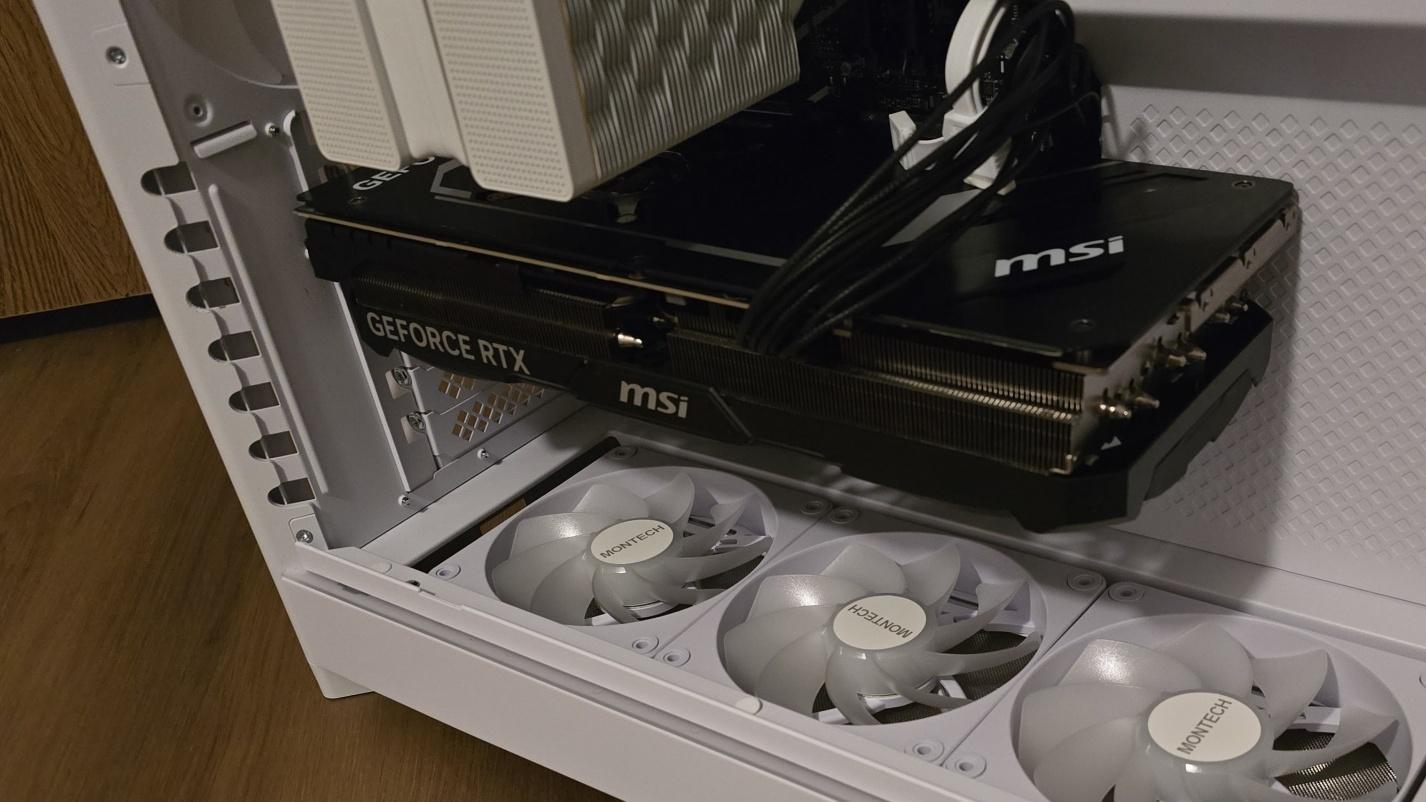
▶️ A note about GPU installation
To secure the screws holding a PCIe device, you have to slide the screwdriver through the side of the case. When I tried using the reliable Linus Tech Tips screwdriver, it was extremely difficult to insert or remove a screw. A slim screwdriver with a longer reach will make installation much easier.
Get Tom's Hardware's best news and in-depth reviews, straight to your inbox.
▶️ Dual exhaust fans
A downside of bottom-mounted intake fans is that airflow to the CPU cooler is reduced. This won’t matter as much with liquid-cooled AIOs, but can reduce the effectiveness of air coolers. In order to rectify (or at least help) this issue, the HS01 Pro incorporates two exhaust fans – but unlike the HS02 Pro, you also have the option of installing traditional front-mounted intake fans to deliver more airflow through your CPU cooler.
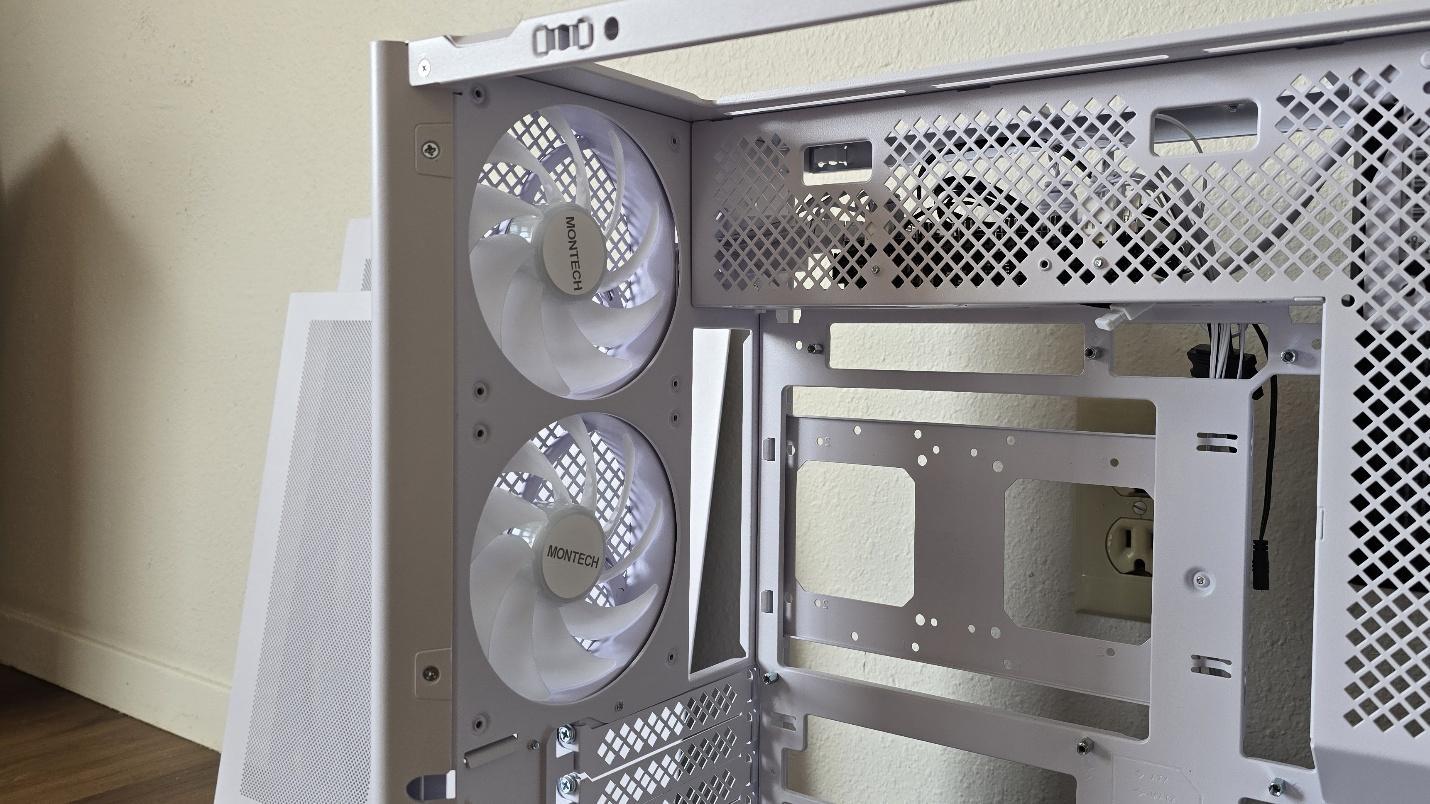
▶️ Unique PSU placement, SFX and ATX PSU support
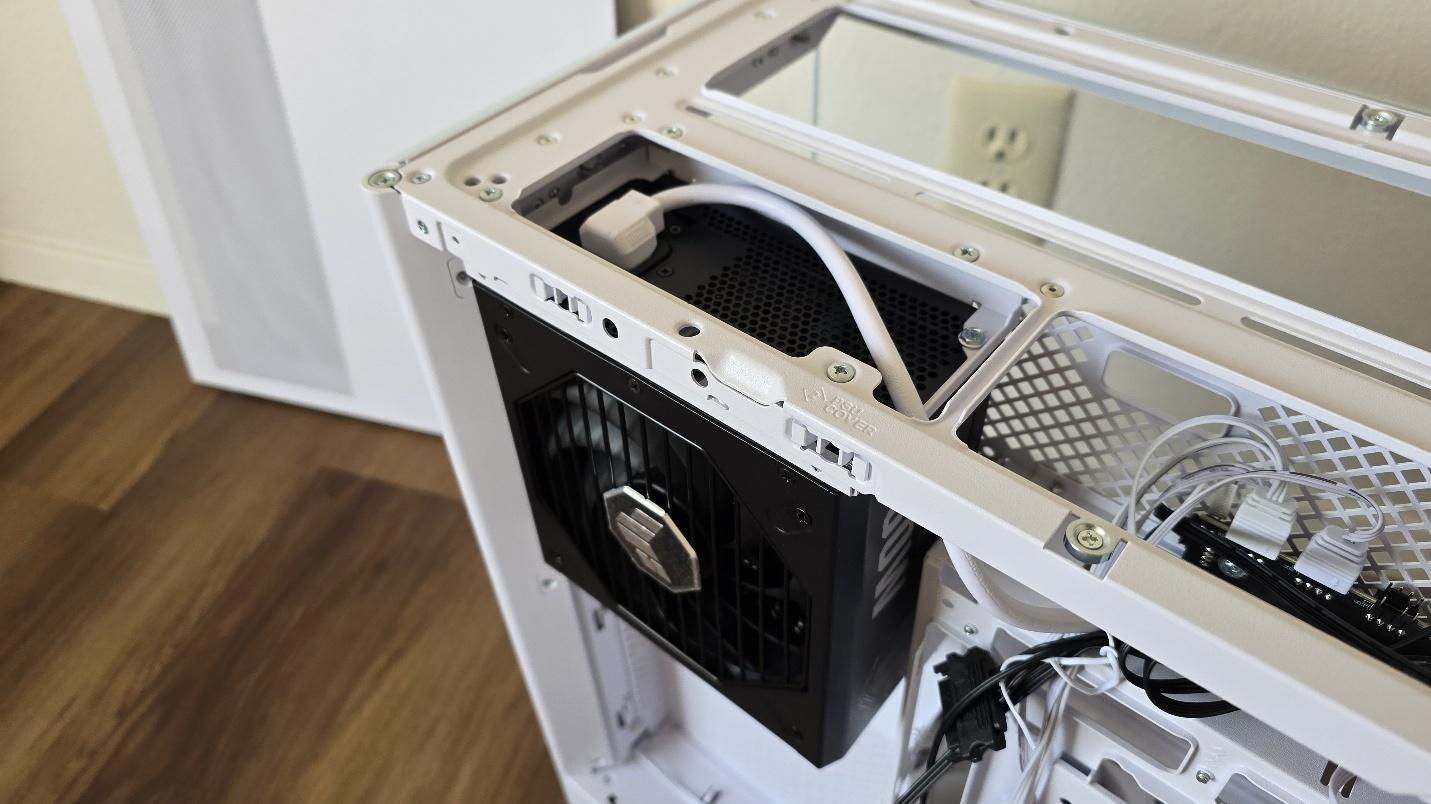
Most modern cases have the PSU located on the rear of the case, but the HS01 Pro moves the location to the front, behind the motherboard. Both ATX and SFX power supplies are supported. Considering that SFX PSUs tend to be more expensive than their larger counterparts, this isn’t much of an advantage unless you happen to have an SFX PSU hanging around from a previous build that you want to use.
▶️ Build quality
The HS01 Pro seems to have good build quality, with no obvious weaknesses observed during testing.
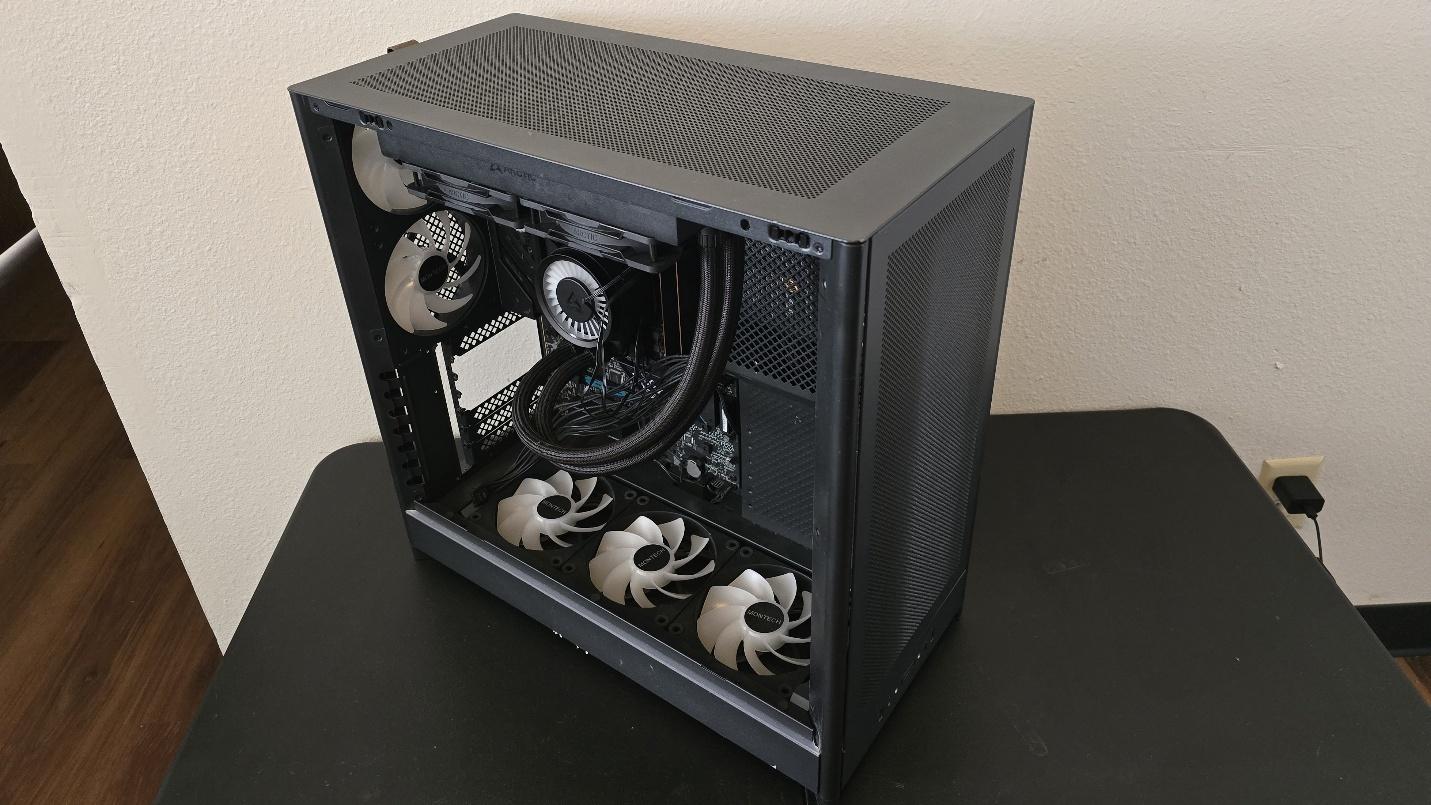
▶️ Side view, back-connect support, GPU holder
In the last year or so, back-connect motherboards like MSI’s Project Zero have become more popular with system builders, as they reduce visible cable clutter and make cable management easier. Montech’s case is the latest of several we’ve seen that support the new motherboard format, with cutouts for connectors on the motherboard tray.
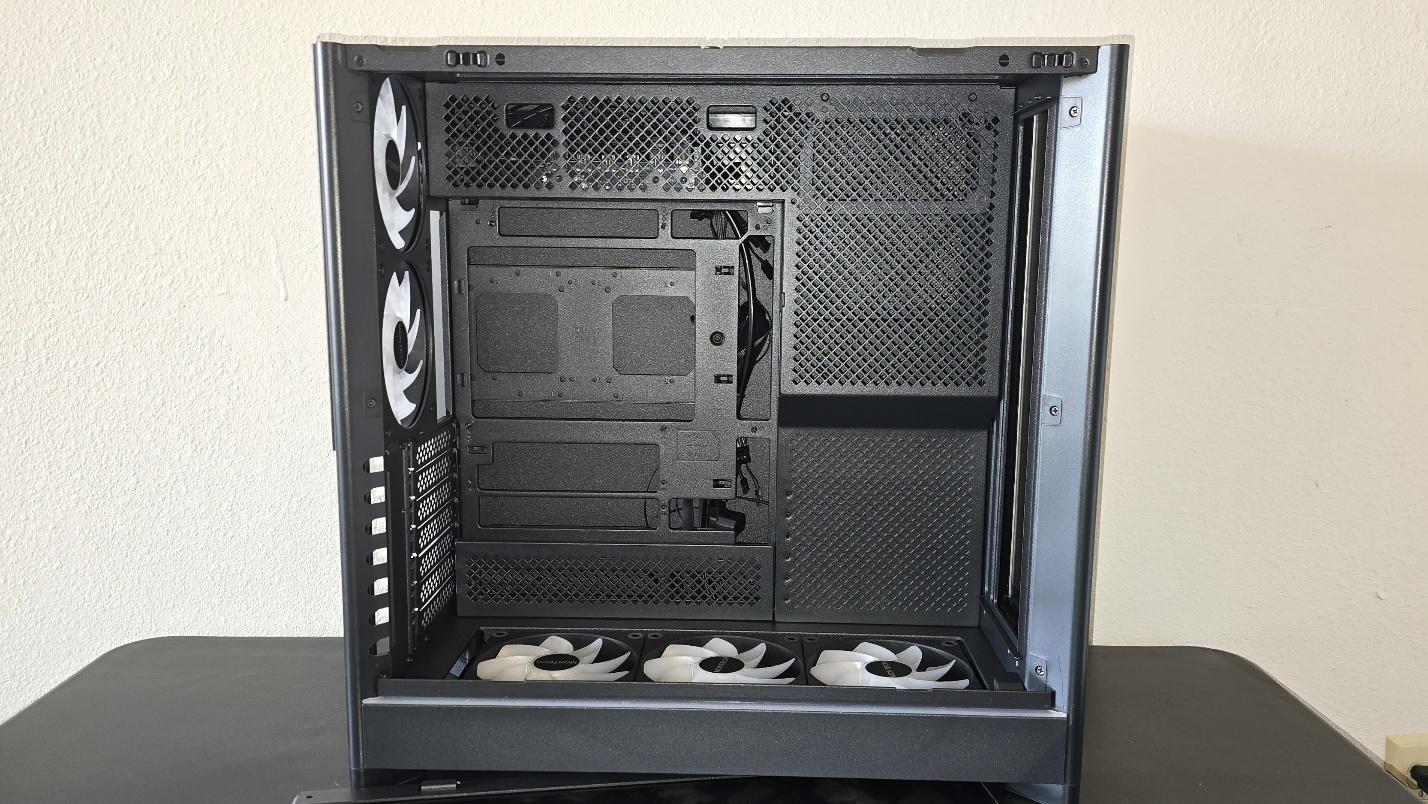
Included with the accessories, shown below, is a basic GPU holder that should come in handy for owners of larger GPUs.
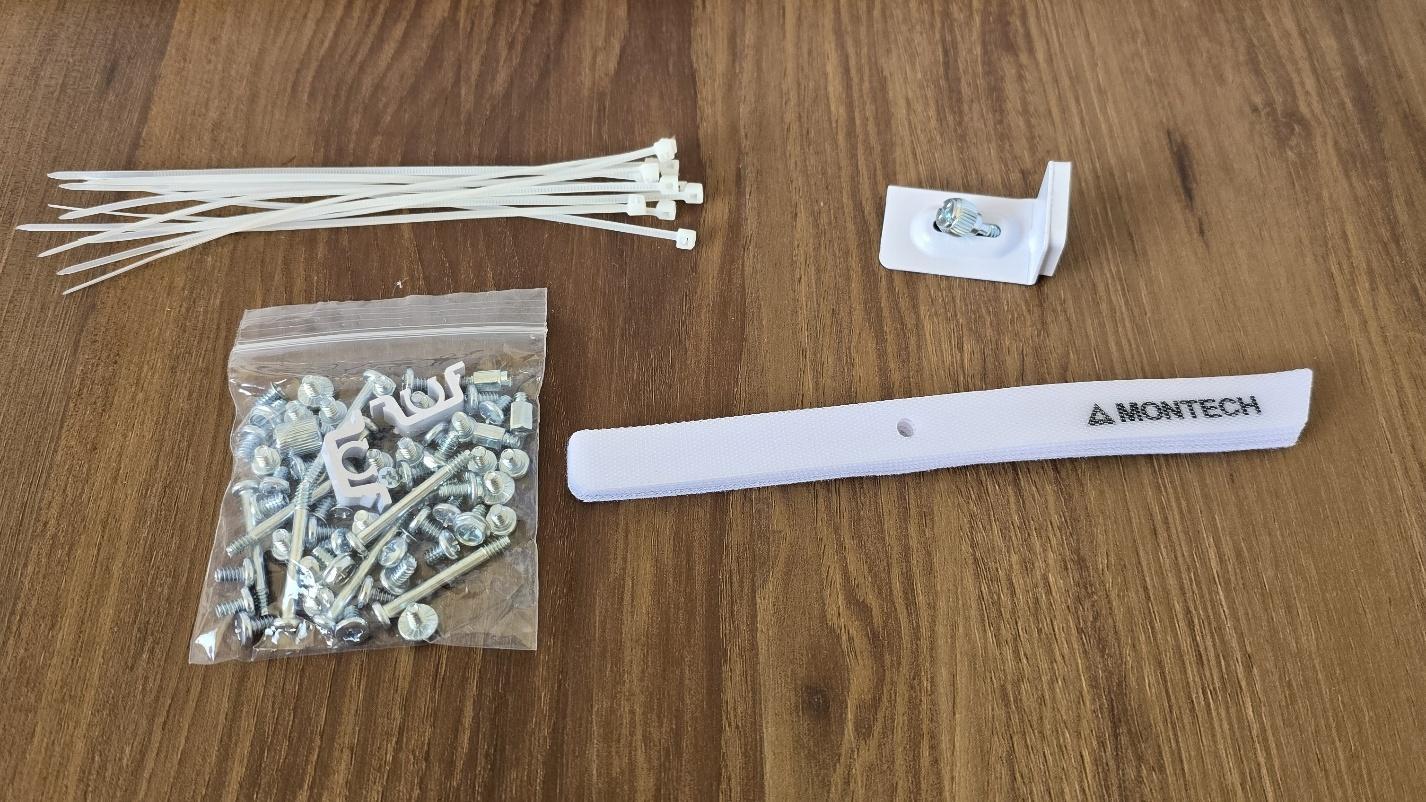
▶️ IO panel
The IO panel is located at the front of the case, near the bottom. It features one USB-C and two USB-A ports, separate microphone and audio jacks, and power and reset buttons. Pretty standard stuff here, although moving USB-A ports to opposite ends and shaping the reset button to match the USB-C port is an interesting symmetrical design choice.
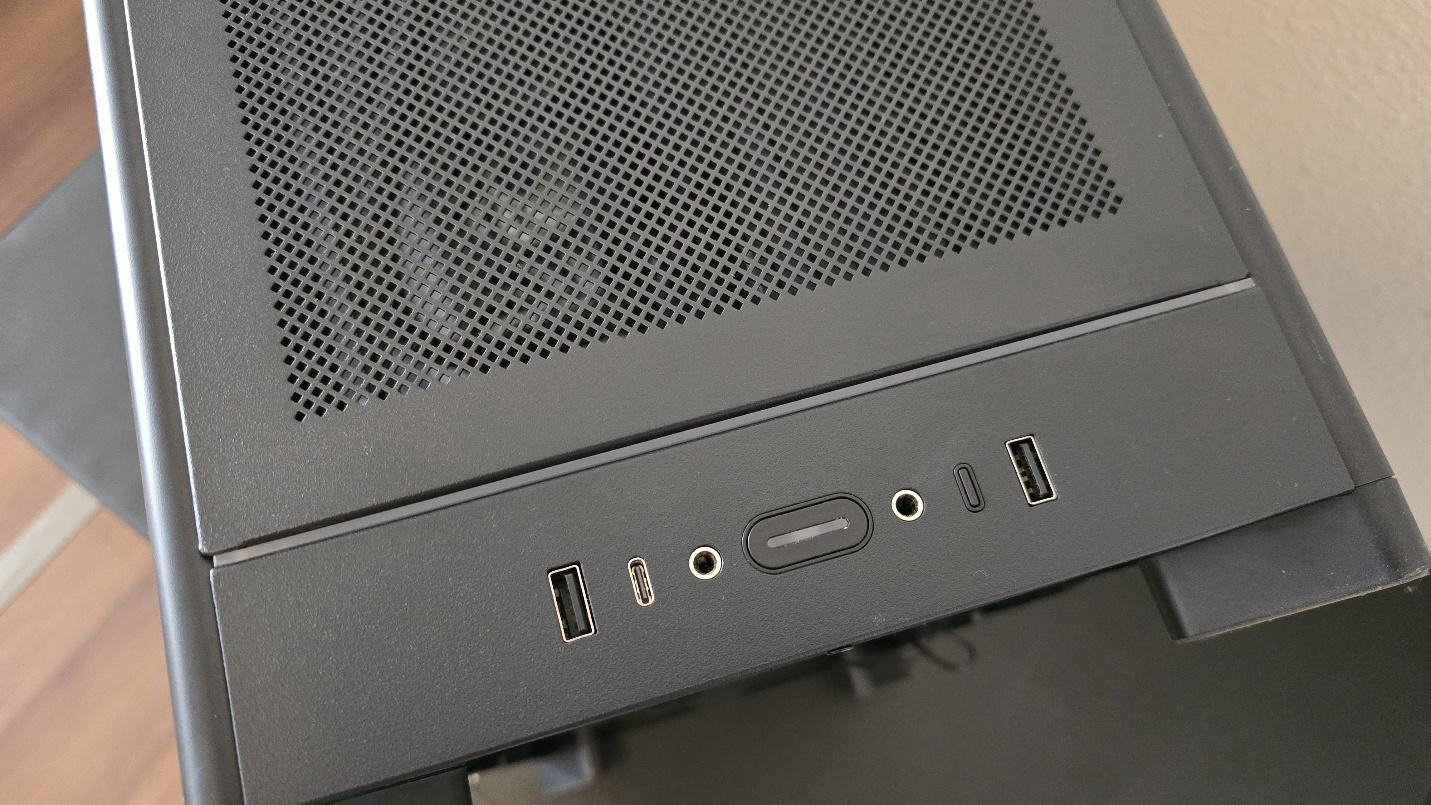
▶️ Dust filters, Bottom View
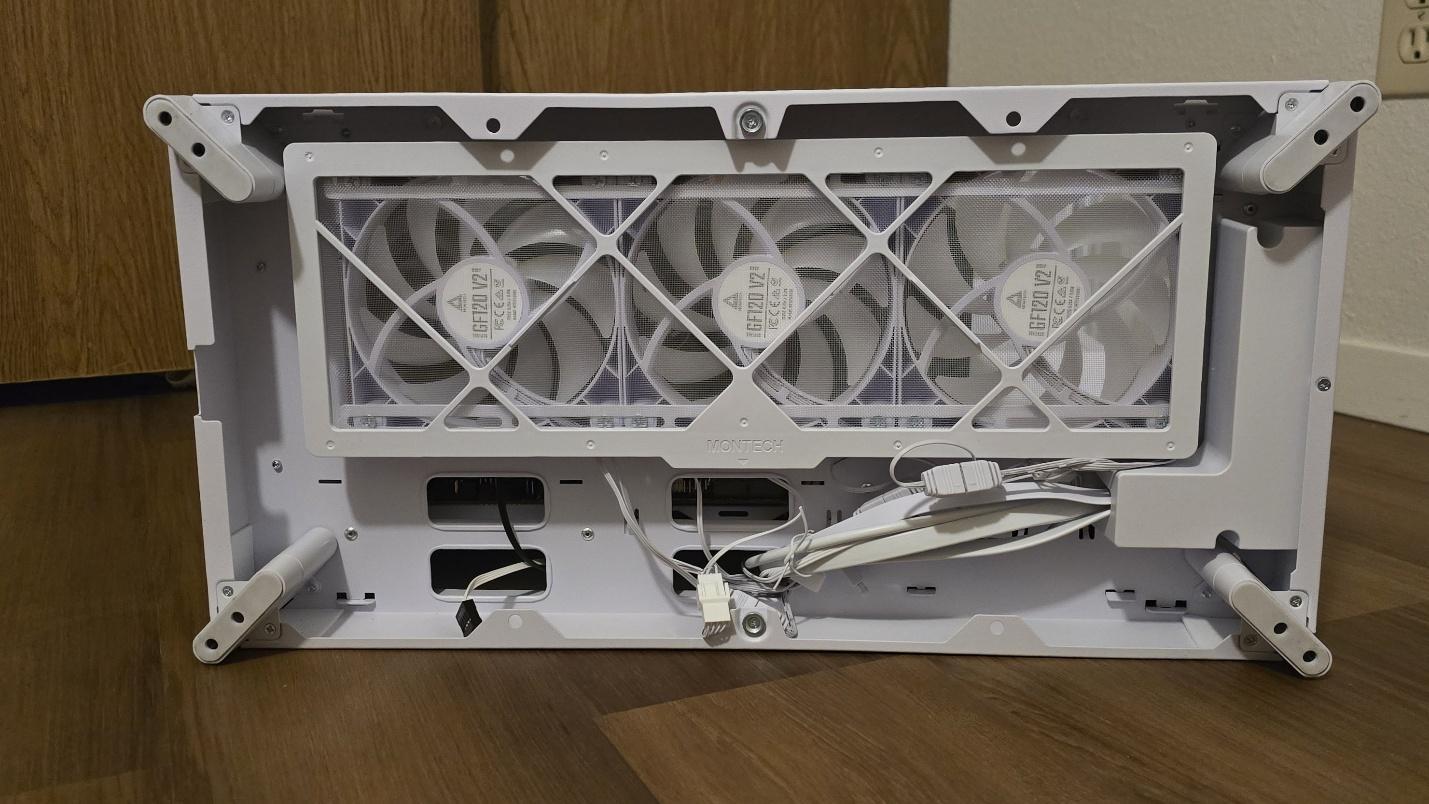
As this case’s air intake is at the bottom, there’s a large, magnetically attached dust filter underneath the case. The unit also features four rubber feet to facilitate ample airflow and prevent the case from sliding.
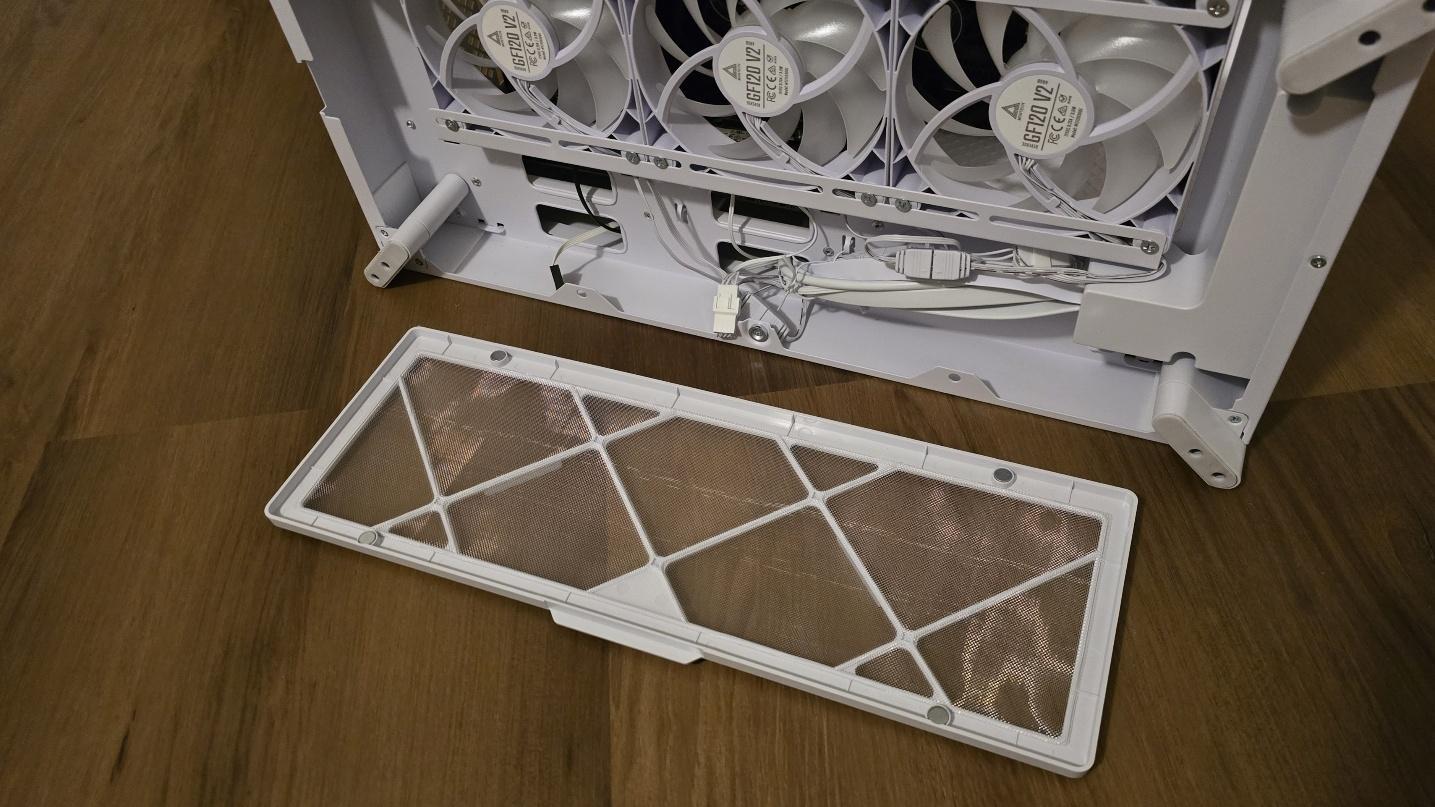
There’s also a mesh covering for the top of the case, which is easily removed using the pull tab on the back.
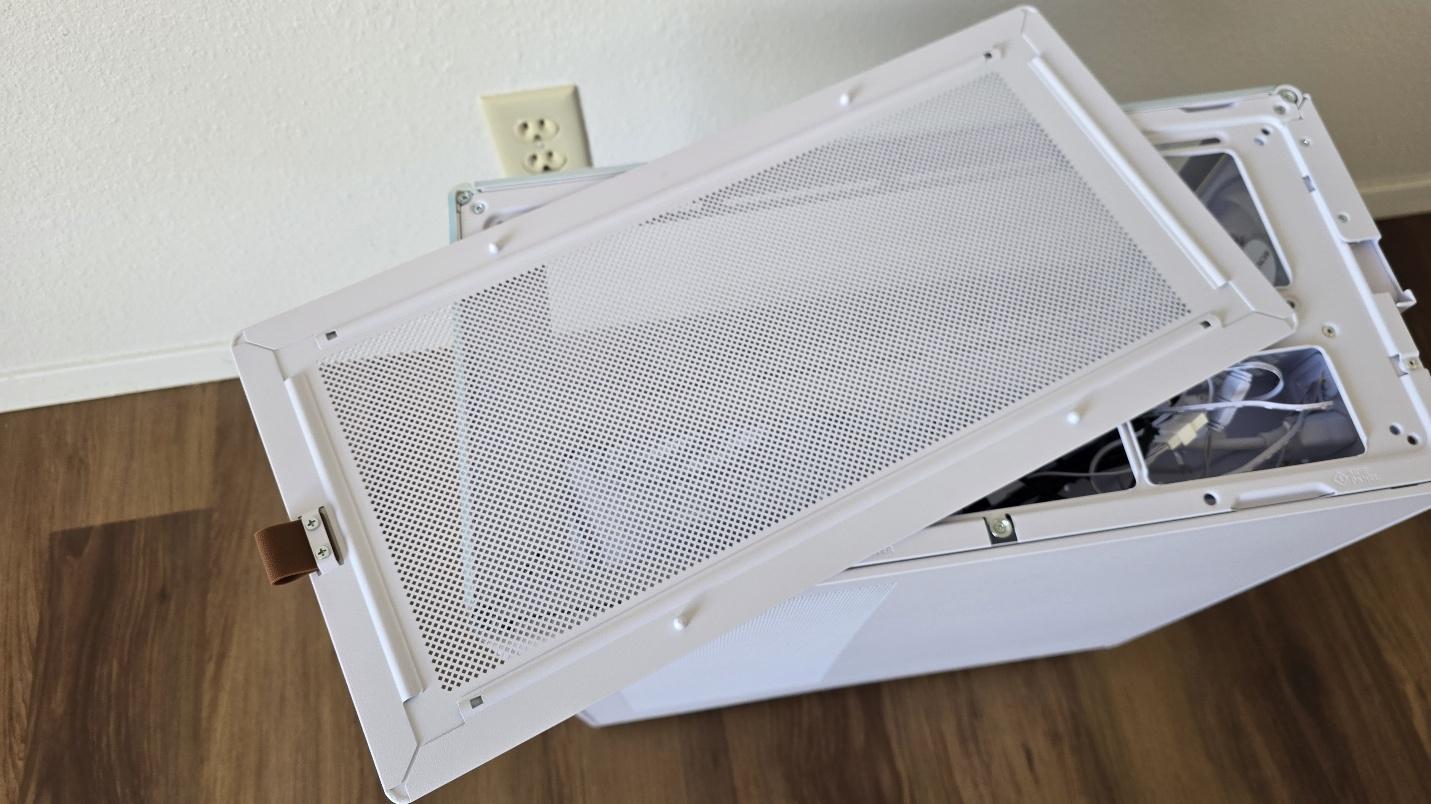
▶️ Rear side view, storage, and cable management features
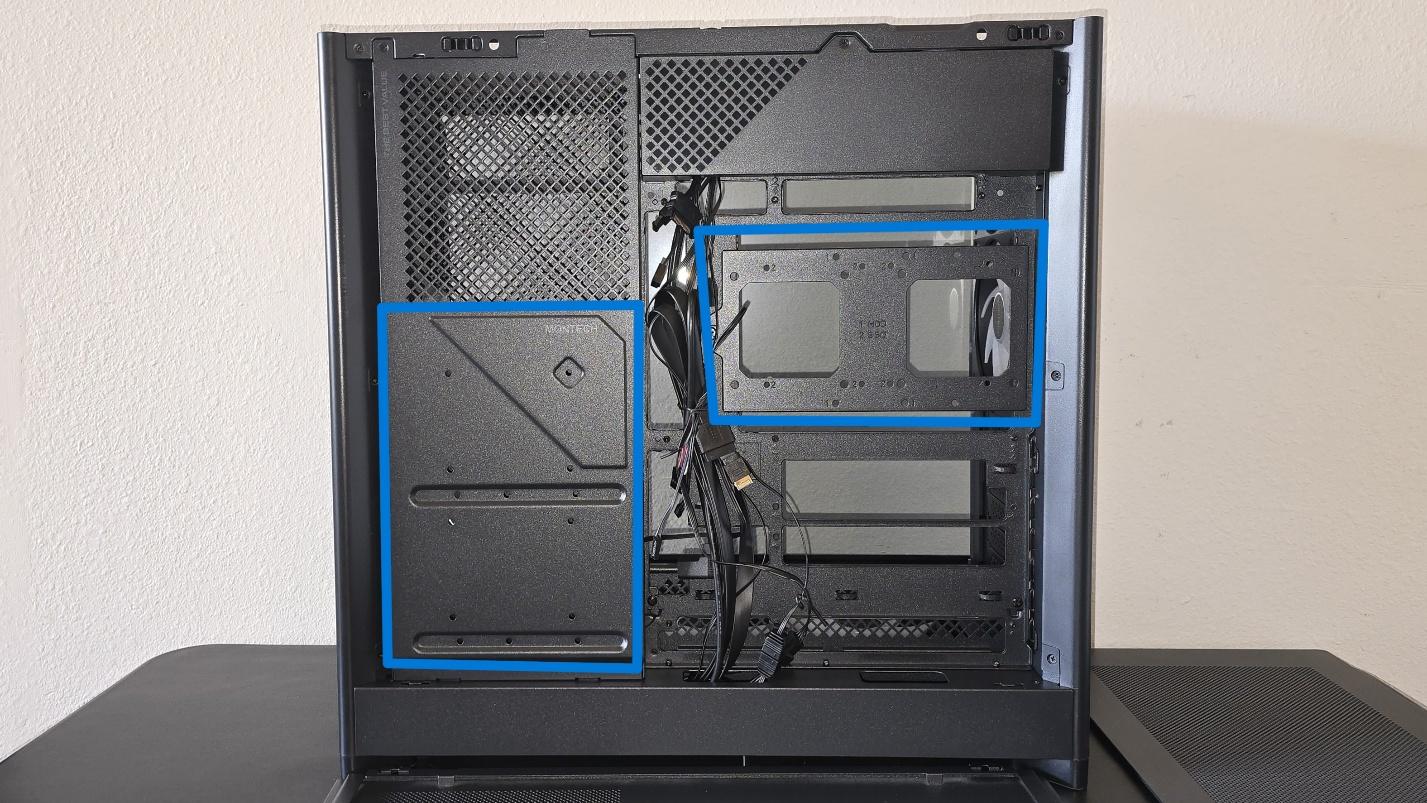
The back view is very clean by default, with two panels covering parts on the left and top of the case. Up to four 2.5-inch drives can be installed – two on the left panel and two directly behind the motherboard (highlighted in blue in the picture above). Behind the top cover, there’s a PWM and ARGB hub to control the RGB system fans (and any others you might add) easily, and the space below the PSU (see image below) can be used to keep cables hidden if you’re using a non-modular power supply.
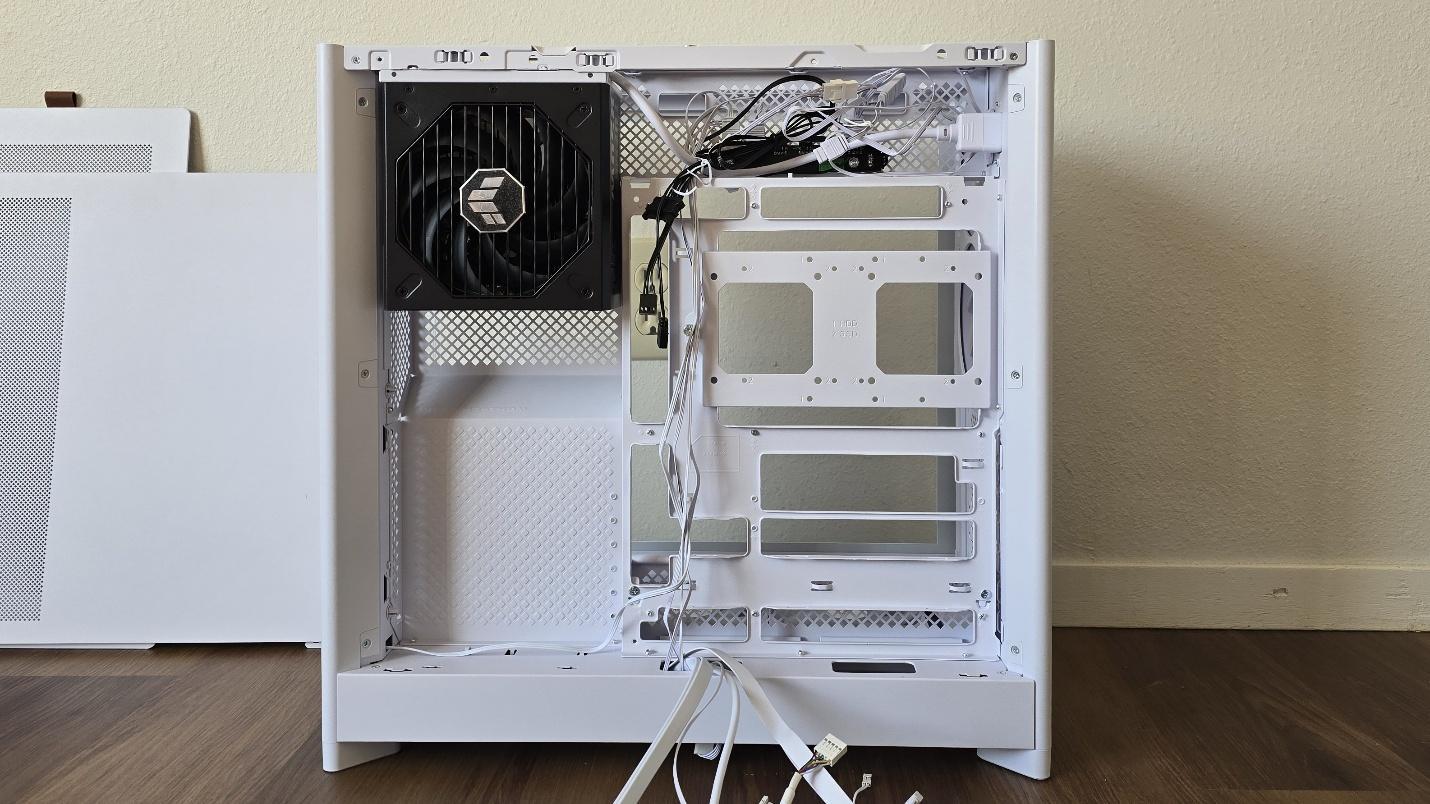
▶️ Front view
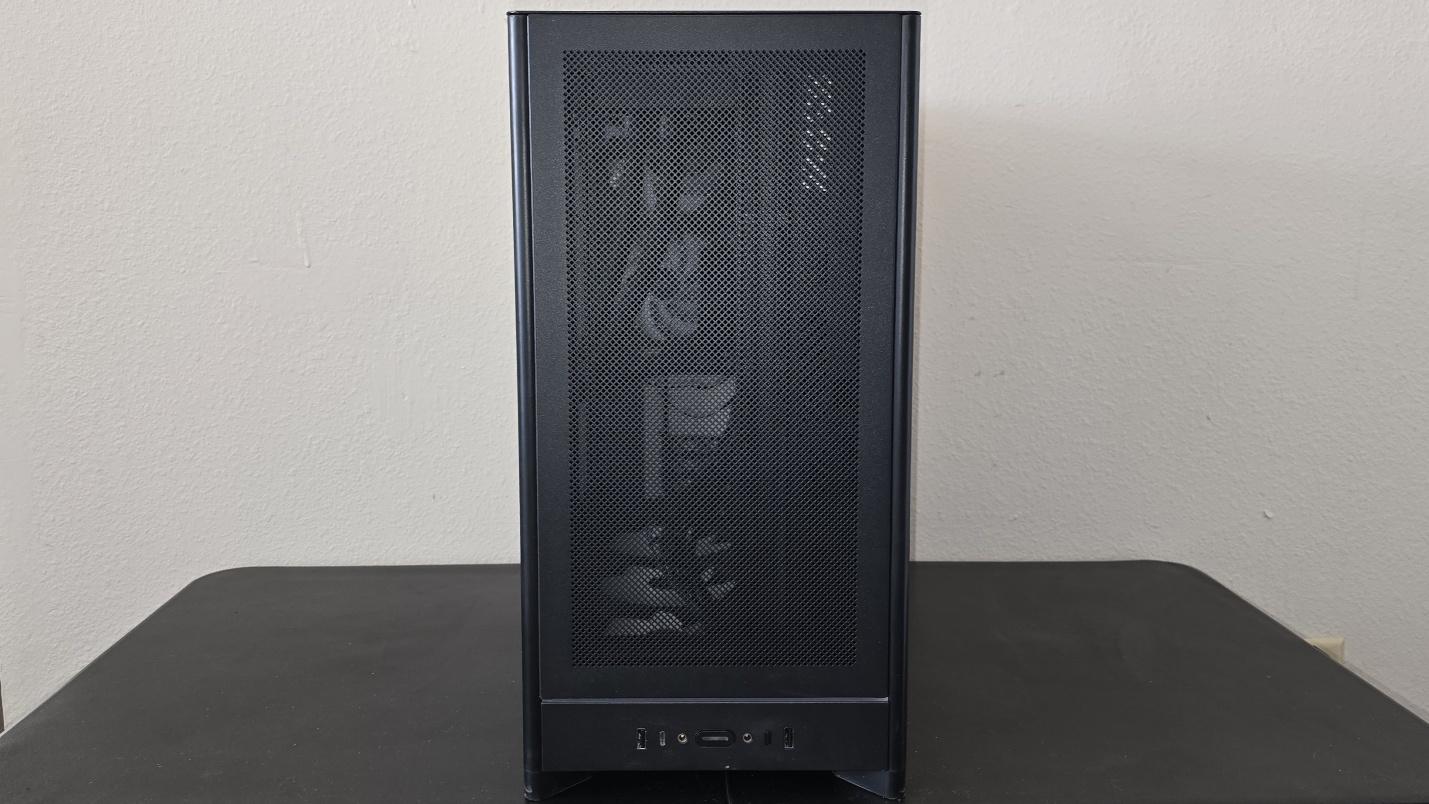
The front of the case features the IO panel and has a mesh cover. Behind the mesh, you can install up to three fans of either 120mm or 140mm size for maximum airflow.
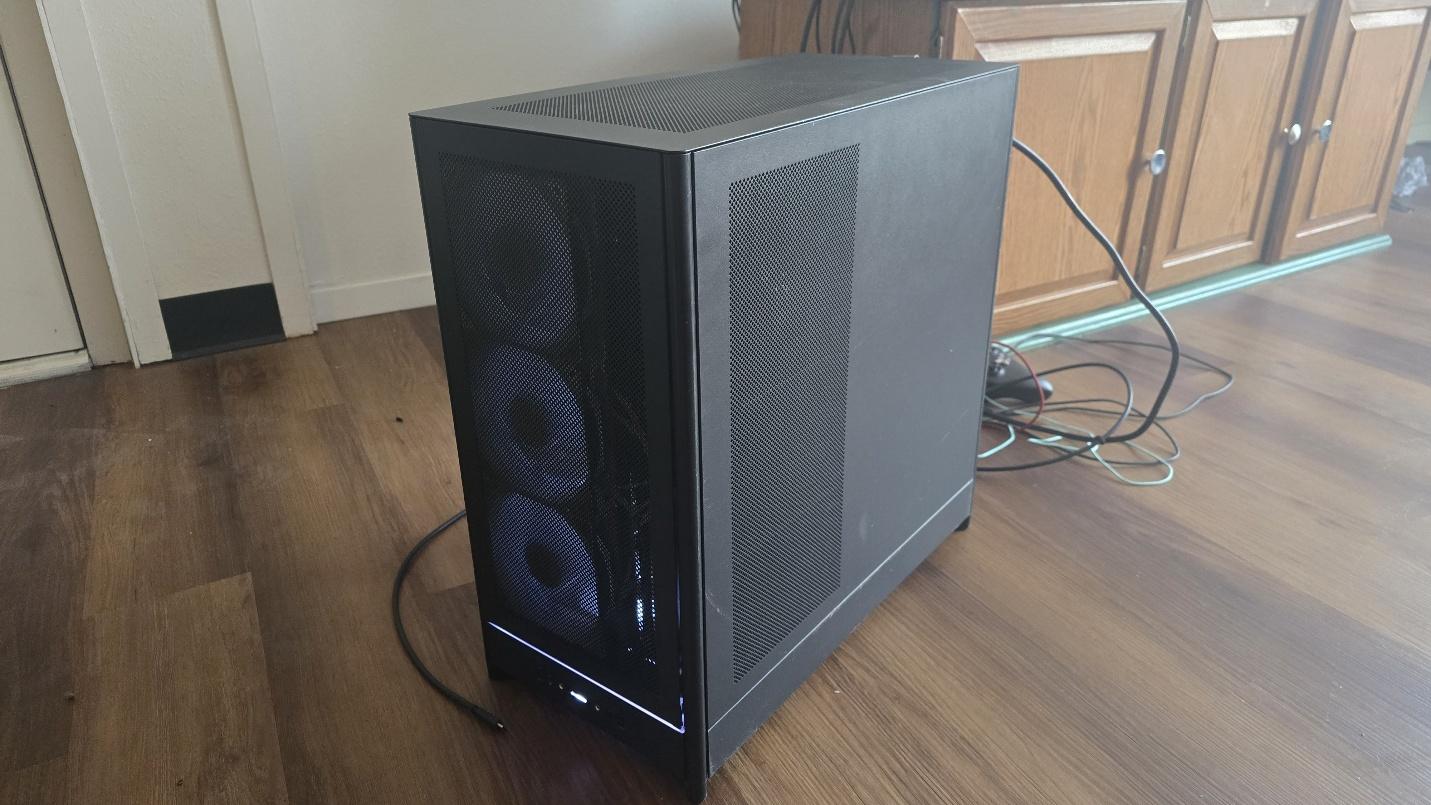
▶️ Rear view
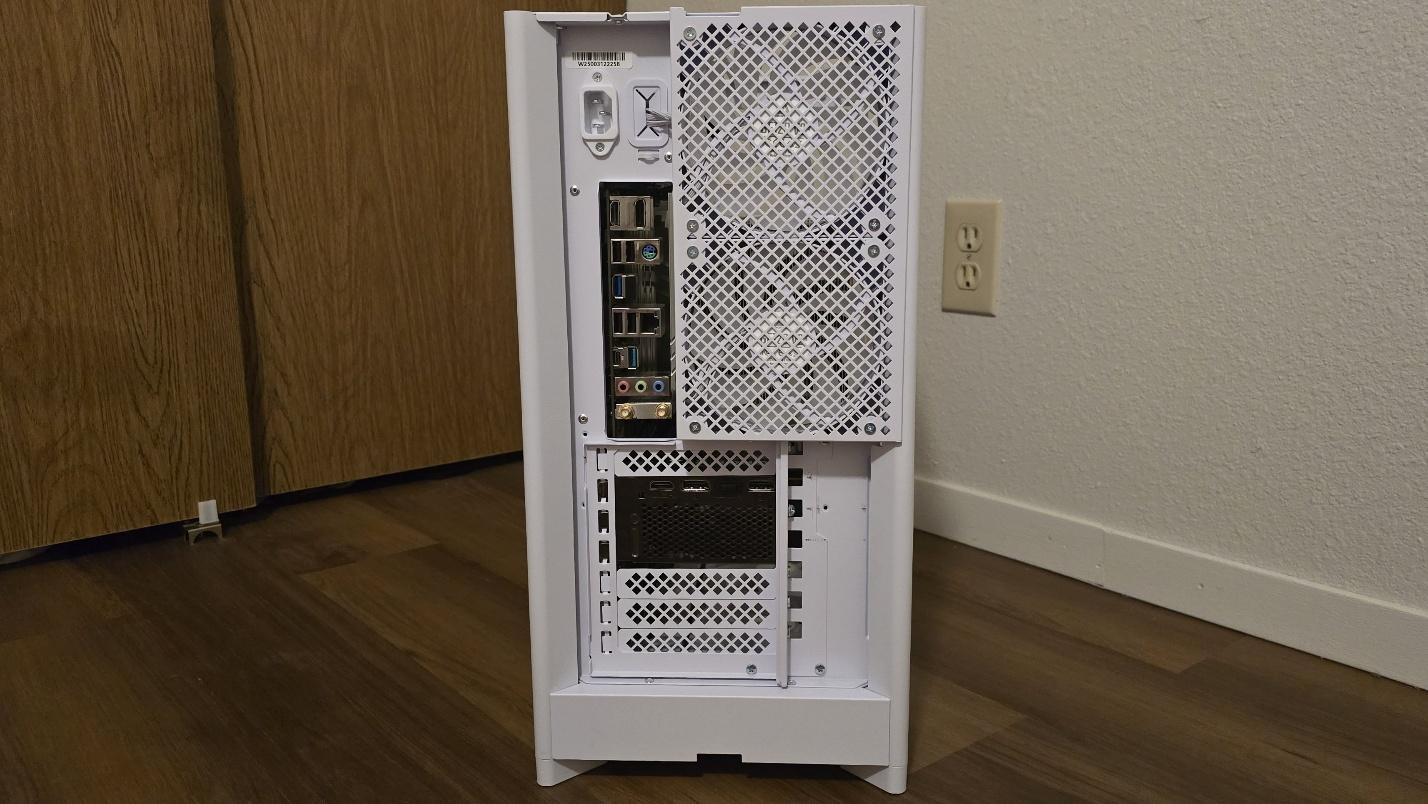
There’s not much to say about the rear of the case. The only stand-out feature is the dual-exhaust fans.
Thermal tests, test setup, and testing methodology
CPU | |
CPU Cooler | Ocypus Iota A62 WH dual-tower cooler, configured with a single fan |
System fans | Default Pre-installed fans |
Motherboard | ASUS Z790-P Prime Wifi |
GPU | |
PSU |
The measurements I’ve benchmarked this case against focus on the efficiency of the case’s thermal transfer.
Our thermal tests are presented to give you more information about the product’s performance, but aren’t intended as the sole judgment of the chassis. The style, price, features, and noise levels of a case should also be considered, and we all have different preferences. What I might like in a case, you might not, and that’s OK. My goal with these reviews is to give everyone, no matter their preferences, enough information to decide whether or not a product is right for them.

Albert Thomas is a contributor for Tom’s Hardware, primarily covering CPU cooling reviews.
-
bit_user Reply
So, you have to tip the case, in order to remove or replace the dust filter? That's not great.The article said:As this case’s air intake is at the bottom, there’s a large, magnetically attached dust filter underneath the case.
Also, unless those bottom fans are high-airflow, it seems like the case will be negative-pressure with a top-mounted radiator. In that case, dust will be coming in from the front and rear vents, as well. Does the front have a removable dust filter?
The pictures seem to show these front fans being installed, and yet the Thermal tests, test setup, and testing methodology section states that only the "Default Pre-installed fans" were used (i.e. 3 bottom intake + 2 rear exhaust). Please confirm.The article said:While the HS02 Pro incorporates a glass front panel, the HS01 Pro instead features a front mesh panel that allows for the installation of additional intake fans.
Finally, why isn't there even a single picture showing the case with the left panel in place? -
thestryker Reply
Yeah even though there's some space and it's magnetic it seems like this is the way to do it. It's too bad they put the front IO panel at the bottom because I think without it the skirts wouldn't have to be so long and the filter would be easier to remove without tilting the case (it would also allow for more airflow, but it's hard to say how important this would be in practice).bit_user said:So, you have to tip the case, in order to remove or replace the dust filter? That's not great.
This is unlikely to be a real problem unless the exhaust fans are set to rather high speeds.bit_user said:Also, unless those bottom fans are high-airflow, it seems like the case will be negative-pressure with a top-mounted radiator. In that case, dust will be coming in from the front and rear vents, as well.
No, which is probably why it isn't mentioned. The front plate on the case containing mesh is removable.bit_user said:Does the front have a removable dust filter?
Did you actually read the results page?bit_user said:The pictures seem to show these front fans being installed, and yet the Thermal tests, test setup, and testing methodology section states that only the "Default Pre-installed fans" were used (i.e. 3 bottom intake + 2 rear exhaust). Please confirm.
Because the only difference – in its default configuration – between the HS01 Pro and the previously reviewed HS02 Pro is the use of a mesh filter for the front instead of a glass panel, we don’t expect results in our typical benchmarks to be much different from the HS02 Pro – so for that information, you can check our review of Montech’s HS02 Pro.
This case wasn't run through the normal tests with standard configuration. Instead it's using a 9950X and was tested with the case in default configuration versus fans added for intake.
Instead, I wanted to see how much – or little – might be gained by adding front intake fans to Montech’s HS01 Pro. For this, I decided to use ASUS’ TUF Gaming TR120 fans. -
thestryker It's a shame the IO panel on the front is at the bottom or I'd consider this case more seriously. I think losing side intake/exhaust is a fair trade compared to a dual chamber case in exchange for being narrower. It has a good intake design (I'd personally only use it with 3x 120s in the front as well) which would allow for minimal fan noise when fully populated.Reply
I think if the IO location isn't a deciding factor this case's tradeoffs are pretty reasonable. The price also isn't bad for what you're getting and you can buy it without fans for $30 less. -
bit_user Reply
So, why was there a section called "Thermal tests, test setup, and testing methodology", which listed a configuration other than what the article actually tested? Why not just link to the other review, which has its own test setup specification, and have this article's section discuss what this article actually tested?thestryker said:This case wasn't run through the normal tests with standard configuration.
Seems needlessly misleading, IMO. -
bit_user Reply
6 intake fans sees like such overkill. I think you wouldn't need so much airflow if the radiator's airflow were completely segregated from the rest of the case.thestryker said:It has a good intake design (I'd personally only use it with 3x 120s in the front as well) which would allow for minimal fan noise when fully populated. -
thestryker Reply
I obviously can't answer that one, and I agree it would probably be better if that section was just removed from this piece.bit_user said:So, why was there a section called "Thermal tests, test setup, and testing methodology", which listed a configuration other than what the article actually tested? Why not just link to the other review, which has its own test setup specification, and have this article's section discuss what this article actually tested?
If one reads any of the results though it should be very obvious that a 9950X is not a 14900K. Also "default configuration" versus "intake fans added" is equally self explanatory.bit_user said:Seems needlessly misleading, IMO. -
thestryker Reply
For this case 6 fans would be good for two main reasons: lowering the load noise level and getting more clean air for the CPU cooler.bit_user said:6 intake fans sees like such overkill. I think you wouldn't need so much airflow if the radiator's airflow were completely segregated from the rest of the case.
If the radiator's airflow was segregated then you end up with a bigger case. It has to be wider, taller or longer and from what I've seen from case manufacturers their options for this are taller and wider. Personally I'd jump all over one which was longer, because chimney style cooling is fantastic for video cards and if you could segregate a radiator in the front it would get clean air and exhaust outside the case. -
Albert.Thomas Well, derp. I see that I forgot to update the testing methodology section to be appropriate to this article. Apologies for that oversight!Reply
